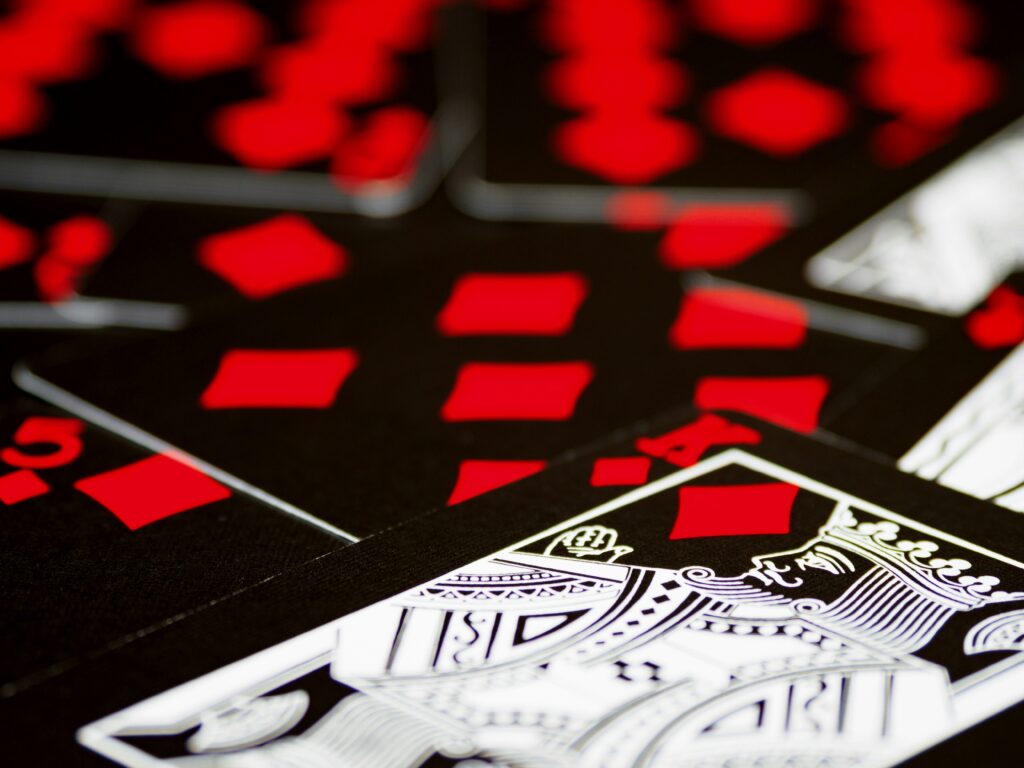Introduction: Why Losses Matter
Losses hit hard. Doesn’t matter if it’s a $10 parlay or a carefully calculated multi-unit wager—when the bet goes sideways, it stings. But here’s the thing: if you’re serious about betting long-term, those stings are essential. They’re feedback. They’re signals. And for seasoned players, they’re the best teachers around.
Veterans in the game don’t pretend losses don’t hurt. They study them. They track why they happened, whether it was a bad read, a bad number, or just plain variance. Most importantly, they don’t let it turn into bitterness. Instead of spiraling, they adjust. They tighten their systems. They get clearer on risk. They keep moving.
The real shift—from casual bettor to serious one—starts when you stop asking, “Why me?” and start asking, “What now?” The goal isn’t to avoid losses entirely (spoiler: you won’t). The goal is to learn fast, stay level, and come out sharper on the other side.
Lesson 1: Emotion is the Enemy
The quickest way to compound a bad betting day is to chase the loss. It feels logical in the moment—one more wager to balance the books, recoup the hit, restore pride. But chasing isn’t strategy. It’s impulse dressed up like courage. And more often than not, it burns the bankroll even faster.
The real edge? Recognizing when tilt is setting in. That moment when frustration clouds judgment, and gut calls start replacing planned moves. Sharp bettors learn to spot that mental fog early and step away. Sometimes the smartest bet is no bet at all.
Successful bettors treat decisions like data points. They take emotions out of the equation. When they lose, they don’t fight the outcome—they evaluate the process. They don’t double down emotionally because they know volatility is baked into the game. Discipline isn’t just about bankrolls and spreadsheets; it’s about knowing when to stop, reset, and protect your edge. Emotion is the enemy. Control is the weapon.
Lesson 2: Bankroll Strategy is Not Optional
The quickest way to burn through your bankroll? Poor bet sizing. Tossing half your roll on a “sure thing” or doubling down after a loss might feel bold, but it’s a fast track to zero. The market doesn’t care about your hunch or your need to bounce back. Overexposure kills.
That’s where staking plans come in. Serious bettors use units—a fixed percentage of their bankroll per bet. Whether it’s 1% or 2%, the goal is survival and sustainability. Units force discipline. They remove ego from the equation and keep you grounded, even in rough patches.
It’s also about scope. Are you betting for the next 10 minutes or the next 10 years? Quick hits might give an adrenaline spike, but consistent, long-term profit comes from playing the long game. Get your house in order. Size your bets right. Respect the grind.
Chalk this up as a truth: if you don’t manage your money, you won’t have any left to manage.
Lesson 3: Every Bet Needs a Reason
Throwing money at a hunch isn’t betting—it’s hoping. And hope doesn’t have ROI. Blind betting burns bankrolls faster than a hot streak fades. The pros know this. That’s why every bet they place is rooted in something: stats, trends, matchups, injuries, weather, whatever the model calls for. Gut might play a role, but it’s the seasoning—not the meal.
Serious bettors build systems. Systems grounded in logic, backed by data, and repeatable over time. This means pregame research, model outputs, and knowing what you’re looking for before lines even open. They don’t jump at every pick—they wait for signals. And once they’ve locked their method, they stick to it. Cold streak? They review, not reinvent.
Then comes the self-audit. After every day, smart bettors ask: Was my process sound? Did emotion creep in? Was this outcome variance, or a bad call? This kind of accountability isn’t sexy, but it’s what separates someone playing the long game from someone just playing. Betting without review is like lifting without logging—it feels productive, but you’re not building anything you can track.
Bottom line: If your strategy is “feels good,” you’re not betting. You’re guessing. And guessing goes broke quietly but consistently.
Lesson 4: Learn to Lose the Right Way
Every bettor takes losses. No one escapes that. The difference between casual gamblers and serious players? How they handle it.
Blaming refs, blaming the weather, blaming “the script”—it’s easy. It also changes nothing. Complaining doesn’t recover a bankroll or improve future bets. The smart approach is to own the outcome, even when it stings. Especially when it stings.
This is where decision quality matters more than result. Was the bet backed by solid logic? Did the odds offer value? If the answer is yes, then sometimes a loss is just variance doing its job. No need to overhaul your process every time luck doesn’t go your way.
Learning to sit with a loss, take it apart, and come back without baggage—that’s what separates sharp bettors from emotional ones. You don’t need to love losing. You just need to know how to lose right.
Lesson 5: Track Everything. Seriously.
One of the most common traits among successful bettors? Obsessive tracking. If you’re not logging your bets, your rationale, and the outcomes—win or lose—you’re missing a goldmine of insights.
Why Tracking Matters
Every bet is a data point. Without tracking:
- You forget the ‘why’ behind your picks
- You repeat the same mistakes without realizing
- You can’t accurately assess your performance over time
When tracked consistently, this information becomes your personal feedback loop.
What to Log (and Why)
Get in the habit of documenting these key elements:
- The Type of Bet (spread, over/under, moneyline, parlay)
- Stake and Odds (helps calculate true ROI)
- Rationale (why did you make the pick?)
- Outcome (win/loss/push)
- Post-Game Notes (what did you miss or get right?)
This kind of tracking builds self-awareness. The patterns you see might surprise you.
Spotting Trends in Your Mistakes
Once you have enough data, look for patterns like:
- Do you lose more often when you bet on certain teams?
- Are weekend parlays killing your ROI?
- Are emotional “revenge” bets sneaking in after losses?
Identifying repeat missteps is the first step toward correcting them.
Make Data Your Best Coach
Numbers don’t lie. And unlike your friend in a group chat, your tracking sheet won’t sugarcoat your record.
Use what you learn to:
- Adjust your stake sizing
- Eliminate unprofitable bet types
- Sharpen your predictive model
Smart tracking turns every loss into a coaching session—and every win into a repeatable effort. Want to get sharper? Start logging.
Lesson 6: Avoid the Echo Chamber
Betting communities can either sharpen your game or completely derail it. On one hand, shared insight can speed up your learning curve—provided the crowd you’re learning from actually knows the game. On the other, hype-heavy groupthink can push even smart bettors into reckless moves. It’s easy to get caught up in a Discord frenzy or a Twitter thread where everyone’s sold on the same “lock.”
The trick is filtering signal from noise. Influencers shouting picks without context or history? Red flag. Trusted sources that lay out rationale, data, and personal track records? Those are worth listening to—sometimes. Still, take everything with a grain of salt. Your bankroll is on the line, not theirs.
Objectivity matters. Just because a pick is popular doesn’t make it profitable. Learn to question the consensus, especially when the crowd sounds too confident. Betting is personal. You’re the one pulling the trigger, so the analysis needs to be yours—even if a community flags the play. Use groups to source ideas, not to outsource judgment.
Lesson 7: It’s a Marathon, Not a Sprint
Cold Streaks Happen (To Everyone)
Even the best bettors endure long stretches without wins. These cold streaks can test patience and shake confidence, especially for those expecting consistent results. But variance is part of the game—not a sign you’re failing.
- Losing streaks don’t mean your strategy is broken
- Emotional reactions to variance can lead to poor decisions
- Staying level-headed is part of being a successful bettor
The Power of Realistic Expectations
If you’re chasing life-changing wins overnight, you’re setting yourself up for disappointment. Betting can be profitable, but only when approached with plans grounded in reality.
- Know your edge: Are you beating the closing line? Are you consistent over time?
- Understand that small wins compound
- Avoid comparing your journey to highlight reels from other bettors
Betting Is Not Your Entertainment Escape
Treat betting like a business move, not a form of recreation. The moment you bet out of boredom, desperation, or emotional impulse—you lose your edge.
- Don’t use betting to chase excitement; it clouds judgment
- Keep your focus on positive EV (expected value), not on outcomes
- Remind yourself: profits follow process
Bottom Line
Sustainable betting is slow, deliberate, and often unglamorous. It requires discipline over dopamine, strategy over streaks, and long-term vision over instant gratification.
Final Reflection: Loss is Part of the Path
One loss is just a beat in the rhythm. But if you’re dialed in, it can tell you exactly where your edge dulled. Maybe you bet too fast. Maybe you trusted surface stats. Maybe you let ego talk louder than logic. The key is to listen—to the data, the decision, even your own gut. If you treat every loss like a closed case, you shut off the only feedback loop that actually works.
The best bettors aren’t just risk-takers. They’re learners. A growth mindset doesn’t mean blindly hoping every next bet will win. It means dissecting the last one like it matters—because it does. That’s how you strip out the dead weight in your process and tighten it up for next time.
Lose without reflection, and it becomes habit. Lose with attention, and it becomes fuel. Those are the only two choices. Keep improving, or keep bleeding funds. No one’s coming to save your bankroll.
Want More Player-Focused Strategy?
If you’re serious about sharpening your edge, it doesn’t stop here. The real insights come from those who’ve taken hits, learned hard lessons, and still show up smarter the next day. At BetVlogHub, you’ll find breakdowns from real players, not armchair commentators. More strategy. More pattern-spotting. Fewer fluff takes. Lose less, learn more—start there.


 Stephenic brings sharp insights and forward-thinking ideas to BetVlogHub. With a strong background in technology and digital trends, he focuses on merging innovation with betting analysis to deliver engaging and data-driven content for readers worldwide.
Stephenic brings sharp insights and forward-thinking ideas to BetVlogHub. With a strong background in technology and digital trends, he focuses on merging innovation with betting analysis to deliver engaging and data-driven content for readers worldwide.

